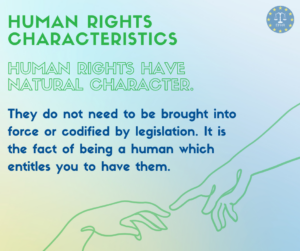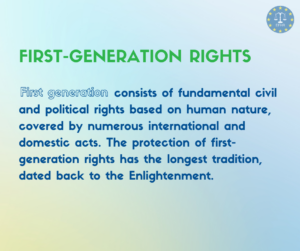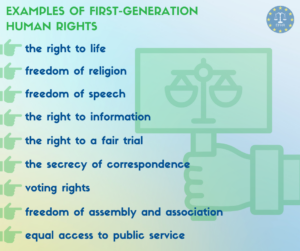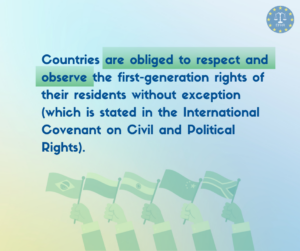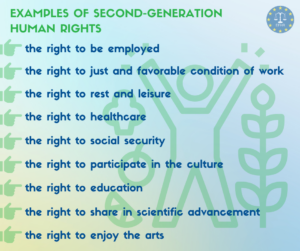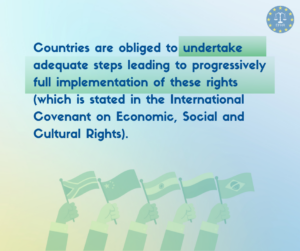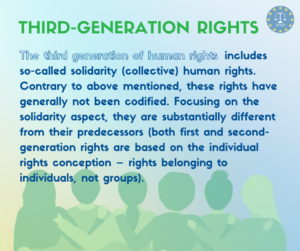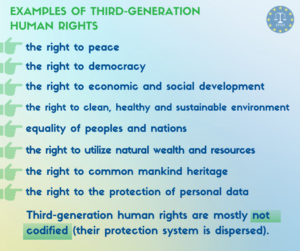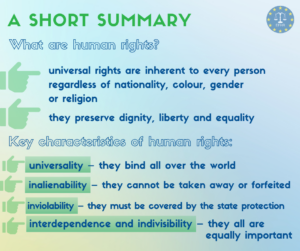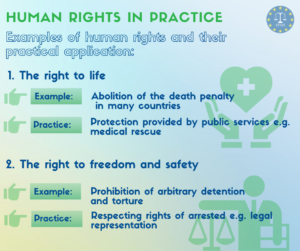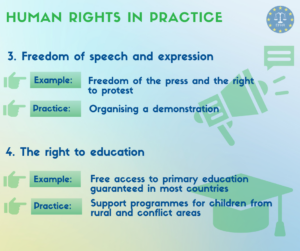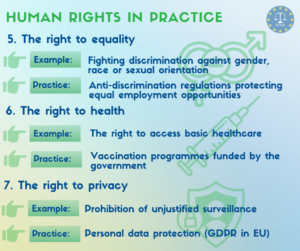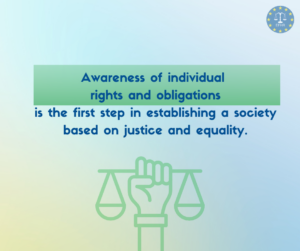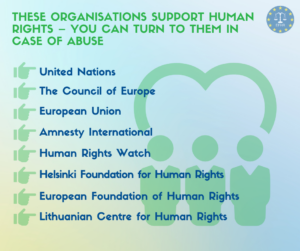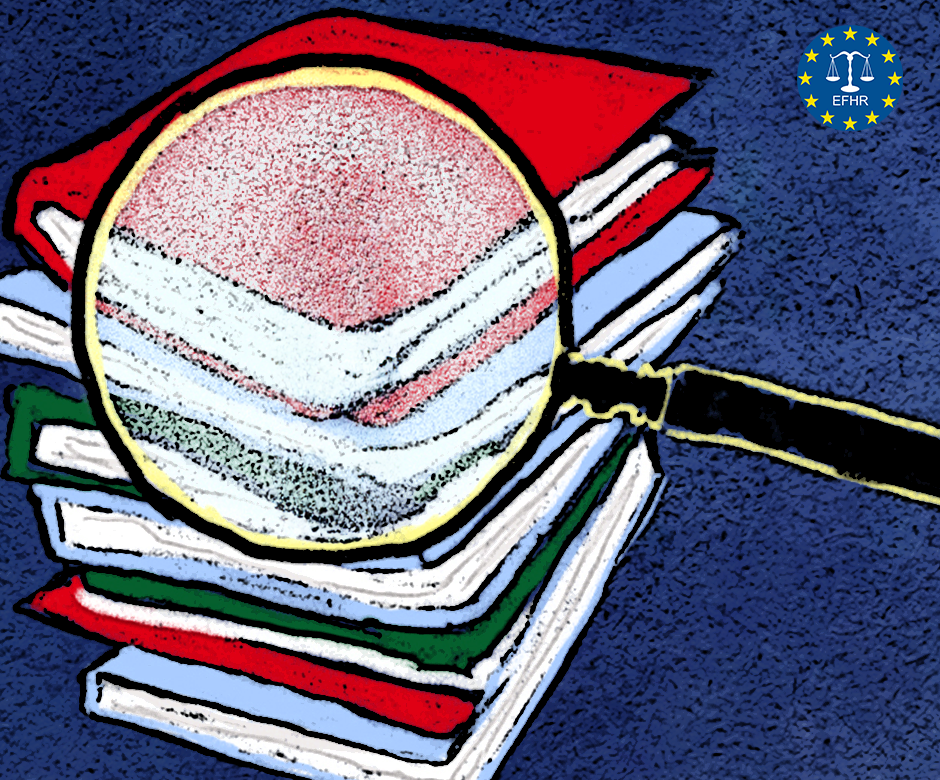- 2024/12/10
10th December – International Human Rights Day
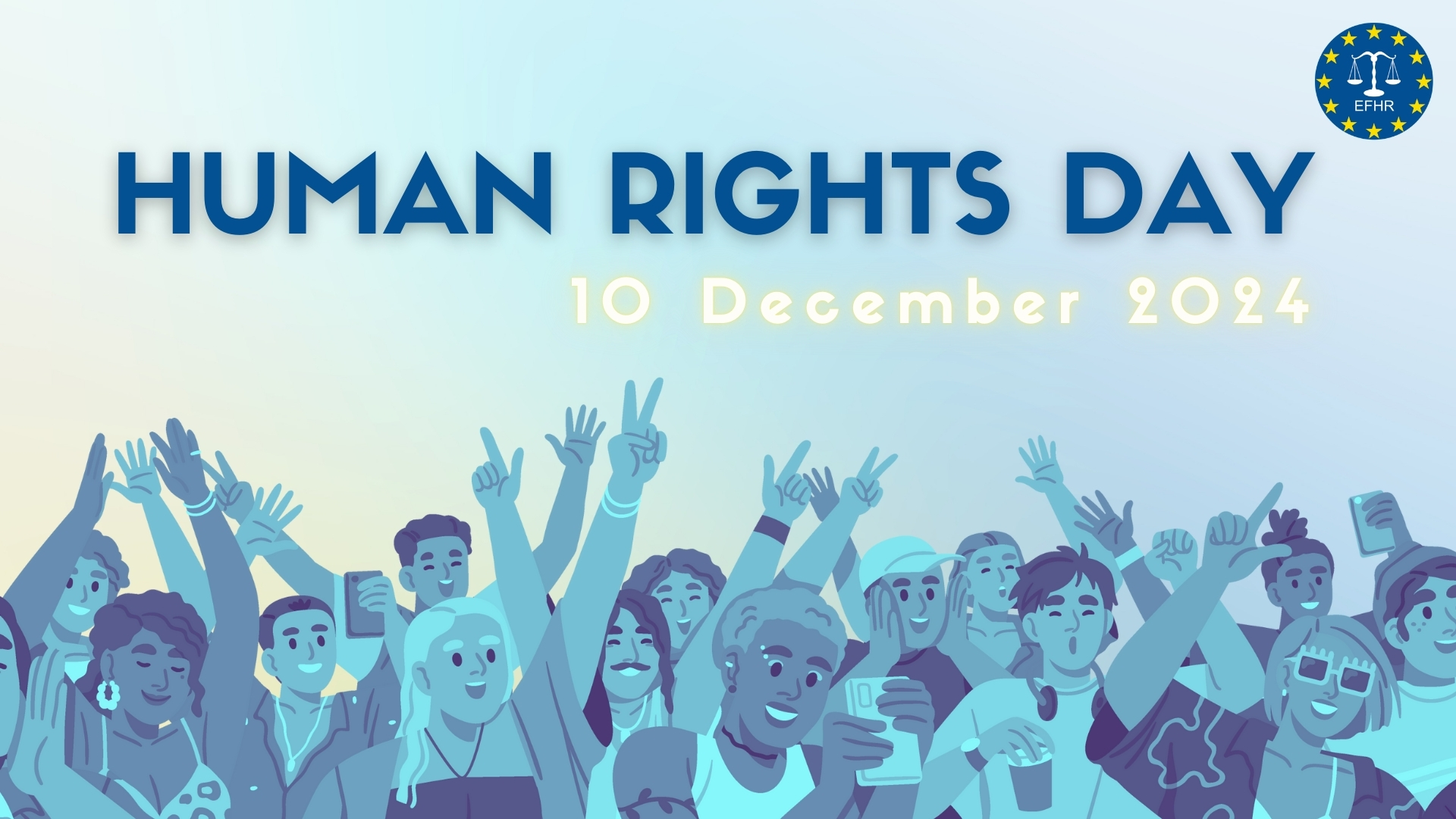
International Human Rights Day is observed on 10th December. It was established on the day the Universal Declaration of Human Rights – one of the most significant documents in the history of humankind – was adopted. The declaration has already been translated to 530 languages and dialects, besides it holds the Guinness World Record title as the world’s “Most Translated Document”.
In the early XX century, respect and observance of human rights were solely in the competence of domestic governments. A universally and legally binding act was not established until the Second World War, which led the international community to endeavour a debate and actions altogether that would eventually prevent the historic mistakes from happening all over again. It was the United Nations that became the international forum for discussion.
On 26th June 1945, the San Francisco Conference concluded with the signing of the Charter of the United Nations, establishing the United Nations. During the conference around 40 international organisations appealed for concentrating more attention on the human rights matter. In 1946, the United Nations created within its structure the Commission on Human Rights, a principal mechanism on promoting human rights and a subsidiary body of the UN Economic and Social Council. The main goal of the newly created Commission, led by Eleonore Roosevelt (USA), an activist on the human rights matter and a widow after former US President, Franklin Roosevelt, was to define human rights and liberties. Due to her involvement, on 10th December 1948, the General Assembly adopted the Universal Declaration of Human Rights.
Signifying the inherent dignity and the equal and inalienable right to freedom and equality of every human being, the Declaration was unprecedented. It constructed a primal pillar of human rights and became a core to lean on for the process of the evolution of international law specializing in human rights protection.
Today, respect for human rights is fundamental for the system of every democratic country. Every individual is entitled to all the fundamental rights constituting his identity from the very moment he is born. These rights are strongly associated with human existence and inherently belong to every individual. They cannot be alienable nor abandonable. Everyone is entitled to benefit from his rights and freedoms without distinction of race, colour, gender, language, religion, political opinion, national or social origin, property, birth or other status. Such a protection applies to whole groups of people, e.g. national and ethnic minorities.
Human rights are universal because they apply worldwide and belong to everyone regardless of individual traits. Human rights are not disposable – nobody can revoke them. They are rooted in the inherent and inalienable dignity of human beings. Human rights are interconnected, interdependent and indivisible. They are equally important, it is not possible to respect only some of them – together they make an integral and correlated entity.
The system of human rights and liberties, established due to the development in the conception of human rights protection, can be divided into three principal groups called generations.
The first generation contains fundamental civil and political rights (so-called liberties rights) covered by many domestic and international legal acts. The protection of first-generation rights has a long tradition, which dates back to the Enlightenment.
The second generation refers to the economic field and the participation in redistribution of goods among individual members of society. The second generation includes social, economic and cultural rights. Social rights aim to provide adequate living and educational conditions, and prevent individuals who are not capable of self-sufficiency from social exclusion. Economic rights provide individuals the opportunity to participate in market mechanisms or become a part of it. Cultural rights enable access and participation in culture, and impact spiritual and intellectual development.
The third generation includes so-called solidarity (collective) rights. Contrary to above mentioned, these rights have generally not been codified. Focusing on the solidarity aspect, they are substantially different from their predecessors (both first and second-generation rights are based on the individual rights conception – rights belonging to individuals not groups).
First generation
- the right to life
- freedom of religion
- freedom of speech
- the right to information
- the right to a fair trial
- the secrecy of correspondence
- voting rights
- freedom of assembly and association
- equal access to public service
Second generation
- the right to be employed
- the right to just and favorable condition of work
- the right to rest and leisure
- the right to healthcare
- the right to social security
- the right to freely participate in the culture
- the right to education
- the right to share in scientific advancement
- the right to enjoy the arts
Third generation
- the right to peace
- the right to democracy
- the right to economic and social development
- the right to clean, healthy and sustainable environment
- equality of peoples and nations
- the right to utilize natural wealth and resources
- the right to common heritage of mankind
- the right to the protection of personal data
Human rights generations are a categorizing pattern showing the evolution of human rights. Generation should not be confused with gradation, as all of them permeate and fulfill each other, making up for the universal system of human rights.






